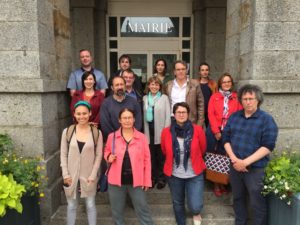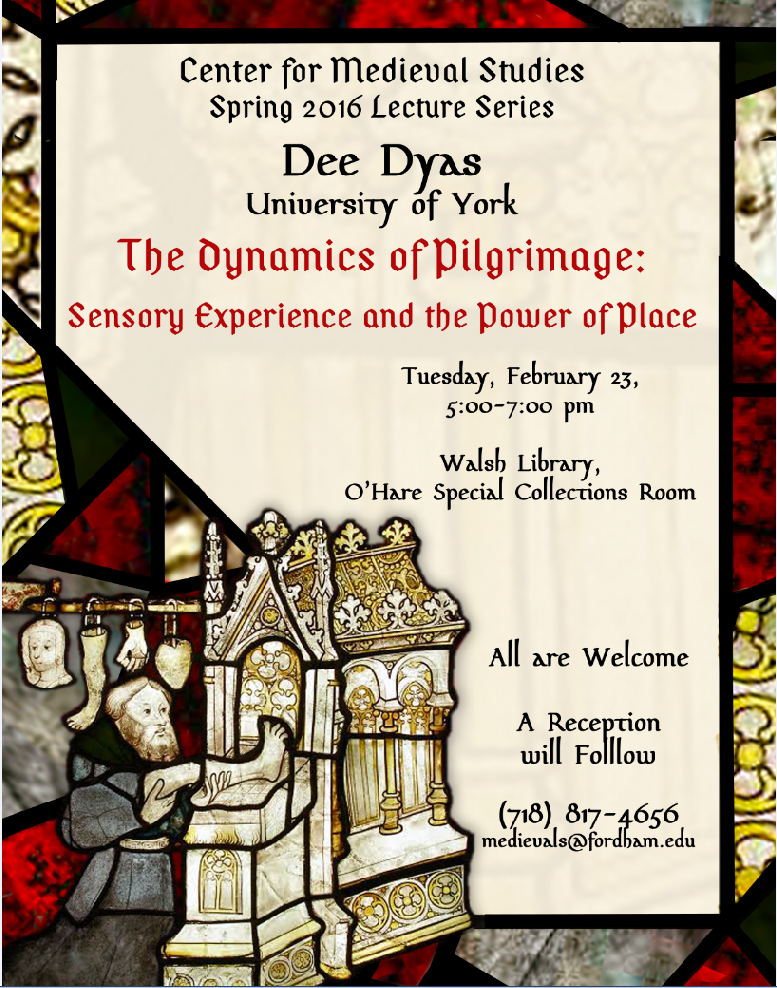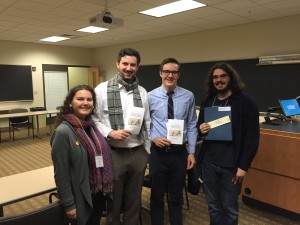
Liturgy and Law in a Dalmatian City
The Bishop’s Book of Kotor (Sankt-Peterburg, BRAN, F. no. 200).
ISBN: 978-0-88844-204-8
The History Department was lucky enough to catch up with its very own Prof. Richard Gyug to discuss his newest book, Liturgy and Law in a Dalmatian City: The Bishop’s Book of Kotor (Sankt-Peterburg, BRAN, F. no. 200). Prof. Gyug has recently returned to campus after a semester’s leave. He has been research fellow at the Pontifical Institute of Medieval Studies (PIMS) where he continued work on his long-running funded project the Monumenta Liturgica Beneventana. Our interview with Prof. Gyug will hopefully give hope and insight to many scholars, especially those starting out like the Fordham MA students now beginning their spring projects, as we discussed the process: how does a project move from an idea to a finished product like a book?
History Department: First thing’s first I suppose, how did the project begin?
Dr. Richard Gyug: The present volume is a study and edition of a medieval manuscript. A much shorter version of the study and two of the four parts of the edition were my doctoral dissertation at the University of Toronto (1984). The manuscript on which the edition is based is cited several times before 1800 when it was still in Kotor in Montenegro, where it was written and used in the middle ages. After that it disappeared until being noted again by Ljudmila Kisseleva of the Academy of Science in St. Petersburg (then Leningrad). Because the manuscript is written in Beneventan script, which was used in southern Italy and Dalmatia from 800 to 1300 or so, after Kisseleva’s note Virginia Brown listed the manuscript in her 1980 revised edition of E.A. Lowe’s The Benventan Script (original edition 1914). I was then at the Pontifical Institute of Mediaeval Studies in Toronto, where Brown was, and her colleague, Roger Reynolds, introduced the manuscript to me in a seminar. I continued to work on it, and made it my dissertation.

Plate 4 from Gyug, Liturgy and Law. This is fol. 70v in the Pontifical of Kotor (St. Petersburg, RASL, F. 200) and is part of the dedication of a church with notated antiphons and an added communal document. The photograph is by Alexander Karnachov © Sankt-Peterburg, BRAN.
HD: After finally being introduced to the manuscript, how long was the process and its different stages?
RG: Very long! In preparing that dissertation, I noted which parts of the manuscript had music, but did not study them, an omission typical of liturgical editions then and now. At the defense, Andrew Hughes, a distinguished musicologist, noted this lack and stressed how important the music was for understanding the composition and use of the book. Of course, he was correct, so before continuing work on the present book, I edited a missal from Dubrovnik in which music was a major component. After that book came out, I worked on other similar manuscripts associated with a long-term grant-funded project, the Monumenta Liturgica Beneventana, of which I was a member with the late Virginia Brown and Roger Reynolds. I picked up the present manuscript again in the mid-1990s and have been working on it off and on since over several research leaves.
HD: This manuscript seems like a regular in your research. Where does the book and this research fit in to your broader research questions?
RG: It’s a liturgical manuscript in Beneventan script. Such manuscripts are the principal topic of the Monumenta Liturgica Beneventan project, so it’s been a key part of the team project.
HD: Did your research on this book lead you into any immediate upcoming projects? If so, would you care to share what those are?
RG: I have continued to work on Beneventan manuscripts from Italy and Dalmatia, and thanks to the comparisons needed for the edition, also on liturgical manuscripts in other scripts from the region. So, it has led to several projects:
(1) a partial edition and study of a Beneventan manuscript containing Breviary and Ritual, which is priest’s manual. This manuscript is extraordinary because it was written in the fourteenth century, late for Beneventan, for use in Albania, which was outside the Beneventan zone, and the manuscript contains a Franciscan liturgy, rare in Beneventan, which is usually Benedictine and monastic. This study was begun and almost completed by my late colleague Virginia Brown, and I am finishing it at her request.
(2) a study of the relationships between Benevetan manuscripts with similar contents (i.e., the services proper to a bishop) and several related non-Beneventan manuscripts from Norman-Sicily, Bari in southern Italy, and Dubrovnik and Trogir in Dalmatia.
(3) the cataloguing of liturgical and other fragments at Montecassino
Thanks to Professor Gyug for taking the time to talk with us, and congratulations on this handsome book!













